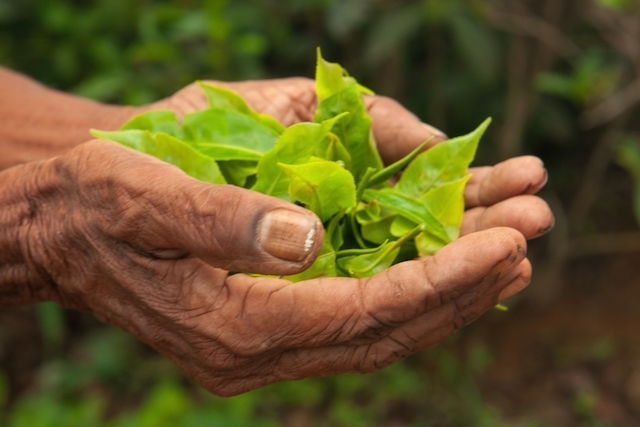Ayahuasca is a tea generally prepared with a mixture of two Amazonian herbs: the Mariri vine and Chacrona leaves. It is widely used in religious and therapeutic rituals with the aim of improving perception, concentration and consciousness.
Also known as “Hoasca” or “Daime”, ayahuasca contains DMT, harmaline and harmine, substances that increase serotonin levels in the body. It can help to improve mood and general well-being and can be indicated to complement the treatment of anxiety, depression and post-traumatic stress.
The use of ayahuasca can cause some side effects, such as vomiting, nausea and diarrhea. Ayahuasca is not recommended for people with a history of schizophrenia, psychosis and bipolar disorder. It should only be consumed in a controlled manner, by a regulated medical health professional or by specialized religious practitioners.

Possible benefits
Even though Ayahuasca is used mainly in indigenous tribes and there are few studies regarding this particular brew, the interest in its medicinal use is growing, and there is an increasing number of studies that justify its use in the treatment of psychiatric problems, such as:
- Depression: different people have affirmed that during their experience with Ayahuasca, they were capable of understanding and resolving the problems that were the underlying reason behind the illness. Read more about the common symptoms of depression.
- Post-traumatic stress disorder: the hallucinogenic effect may allow the person to relive the memories that lead to the syndrome, allowing them to confront fears or help the grieving process become easier;
- Addictions: Ayahuasca may also help the person to look more deeply into their ideas, problems, beliefs, and lifestyles, causing changes in negative habits.
Nevertheless, cults that perform Ayahuasca ceremonies state that this type of medicinal effect only happens if the person is determined to face their own problems and that it should not be taken as a simple remedy to cause the desired effect.
Even though many times it is compared to a drug, Ayahuasca tea does not fit in this category, because it does not seem to have chronic toxic effects, or cause addiction or any other type of dependence. Despite this, anyone seeking to use this type of brew should do it so under the supervision of someone who knows the effects well.
Side effects
The most frequent side effects resulting from the ingestion of Ayahuasca are vomiting, nausea, and diarrhea. These side effects can happen immediately after drinking the mixture or during the hallucinations. Other side effects include excessive sweating, shaking, increased blood pressure, and increased heart rate.
Because it is a hallucinogenic drink, Ayahuasca can cause permanent emotional changes such as high anxiety levels, fears, and paranoia, which in extreme cases can cause death. Therefore, even though it is a legal drink, it should only be used after careful consideration by both the user and a professional with experience in using this tea.
What are the visual hallucinations like?
The hallucinations that happen as a result of ingesting Ayahuasca tea are usually seen in the mind when the person’s eyes are closed, which is why they are often referred to as closed-eye hallucinations. During these episodes, the person may see animals, demons, deities, and even see themselves flying.
For that reason, this tea is used for mystic purposes to complete religious rituals, allowing the person to access a kingdom that comes in contact with the divine.
Risks of using ayahuasca
Although they are uncommon, the possible risks of using ayahuasca are:
- Uncontrollable hallucinations
- Psychosis
- Seizures
- Fainting
- Respiratory and cardiac arrest
These risks occur mainly when ayahuasca is consumed together with drugs, such as alcohol, LSD and MDMA or if it is taken by people a history of bipolar disorder, Parkinson's, psychosis or schizophrenia. These are also more likely in those who certain medications such as selective serotonin reuptake inhibitor antidepressants.
Furthermore, these risks are also possible when ayahuasca is used recreationally and uncontrolled, due to errors in preparing the tea or the addition of other plants or substances to the drink.
Contraindications for use
Ayahuasca should not be consumed together with alcohol beverages or drugs, like marijuana, opium, LSD and MDMA. Likewise, this tea is not recommended for people who are using monoamine oxidase inhibitor medications, such as isocarboxazid, moclobemide, phenelzine, selegiline and tranylcypromine.
Ayahuasca is also contraindicated for people with bipolar disorder, psychosis, Parkinson's or schizophrenia. The use of ayahuasca should only be done in a controlled manner, in regulated medical or religious environments.
People who use selective serotonin reuptake inhibitor antidepressant medications, such as fluoxetine, sertraline and citalopram, should speak to their doctor before using ayahuasca.
Furthermore, pregnant or breastfeeding women, as well as children, should not consume ayahuasca without medical advice.






























